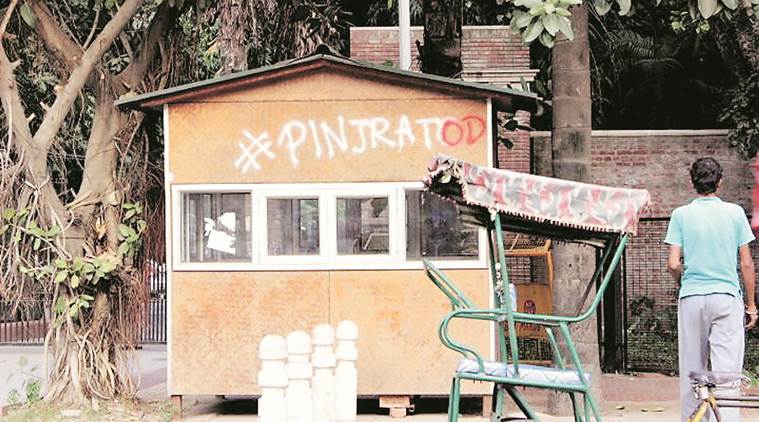Girl students of Maulana Azad National Institute of Technology in Bhopal are protesting against dress code and curfew timings imposed by the college authorities. They are calling it a ‘Talibani rule’. Reportedly, the hostel timing has been stipulated to 9 pm and girls are barred from wearing miniskirts and shorts in the campus, hostel office and the lobby.
Last year in August, a group of women from Delhi University, Jamia Millia Islamia, Ambedkar University, National Law University and Jawaharlal Nehru University ran a campaign called ‘Pinjra Tod’ against the diktats imposed by wardens, principals and landlords in ‘women’ hostels and PGs.
I remember in 2013 after the horrific Nirbhaya case, Maharaja Sayajirao University in Vadodara had forced similar rules on girls’ hostel. Many of us went to the chief warden and protested. One of us asked, “Why don’t you stipulate timing for boys’ hostel?” He immediately responded, “These boys cannot be bound in a particular time frame. They are free to roam around.”
What he meant was that women needed to be jailed to be protected but the state cannot take an action against men or think of curbing their freedom. These diktats are followed religiously not just in small cities but even in metros. Be it Chennai’s Sri Sai Ram Engineering College or Hazra Law College in Kolkata, women face similar issues in the name of protection and moral policing. The boundaries are forced on women by issuing rule books of what to wear and what not to.
Last year, Chennai’s Sri Sai Ram Engineering College came out with bizarre list of 14 rules barring girls from wearing leggings, high heels, short kurtas and patialas. It also stated that girls will not be allowed to wear large watches or leave their hair loose. Hazra Law College in Kolkata also asked students to attend classes in black trouser and white shirt and girls were instructed to wear white saree or salwar-kameez with black and grey full-sleeved blouse.
This sort of moral policing by state only depicts their inability to provide adequate environment for girls to study or step out of their houses. Prime Minister Narendra Modi’s “Beti Bachao Beti Padhao” abhiyaan will remain a dream until moral policing does not end and patriarchy takes a backseat. What a woman needs is a safe environment and not interfering institutions that put victims in chains and leave the culprits on parole around the city.
















